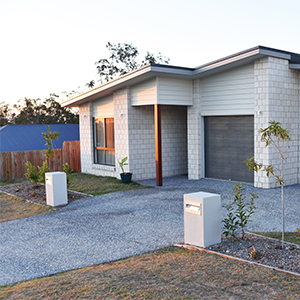
Logan City Council will introduce new infrastructure charges from April 1 next year.
Council adopted Logan Charges Resolution (No. 9) 2021 at its Ordinary Council meeting on Wednesday, December 9.
The early announcement of the changes to some infrastructure charges is aimed at giving residents, builders, developers, building certifiers and planning consultants ample notice to factor the changes into any upcoming development applications.
Resolution No. 9 will simplify charges by replacing multiple network charge areas with a single charge area for each network.
A single charge area, for those parts of the city where a network is provided, helps provide more certainty for development as it allows for more accurate project budgeting.
The new charges apply to Council infrastructure networks including water supply, sewerage, stormwater, transport, parks and land for community facilities.
Network charge increases are in line with State legislation (Planning Regulation 2017).
New charges also apply for development applications relating to, and construction of, auxiliary units.
An auxiliary unit forms part of a main dwelling and must be two bedrooms or less.
It can be occupied by a separate household to the main dwelling and can be used for rental income.
From April 1, Council will reduce the existing discount on the State-legislated infrastructure charges for auxiliary units by 25 per cent.
The new $16,192 charge is still the cheapest in any Local Government area in Queensland.
The increase does not apply to a secondary dwelling (a ‘granny flat’) that is occupied by members of the same household as the main dwelling. A secondary dwelling cannot be used for rental income.
City Planning, Economic Development and Environment Committee Chair, Deputy Mayor Jon Raven, said the time had come for Council to reduce the incentives on auxiliary unit development.
In recent years, approvals for auxiliary dwellings in the City of Logan have risen from 326 in 2015/16 to a high of 846 in 2017/18 with 646 approved in the last full financial year 2019/20.
“Too often we have seen developers squeeze in additional housing purely for income purposes with no regard for the surrounding community and infrastructure,” Cr Raven said.”Neighbours don’t like it, the community doesn’t like it and now Council has taken steps to answer those concerns.”








